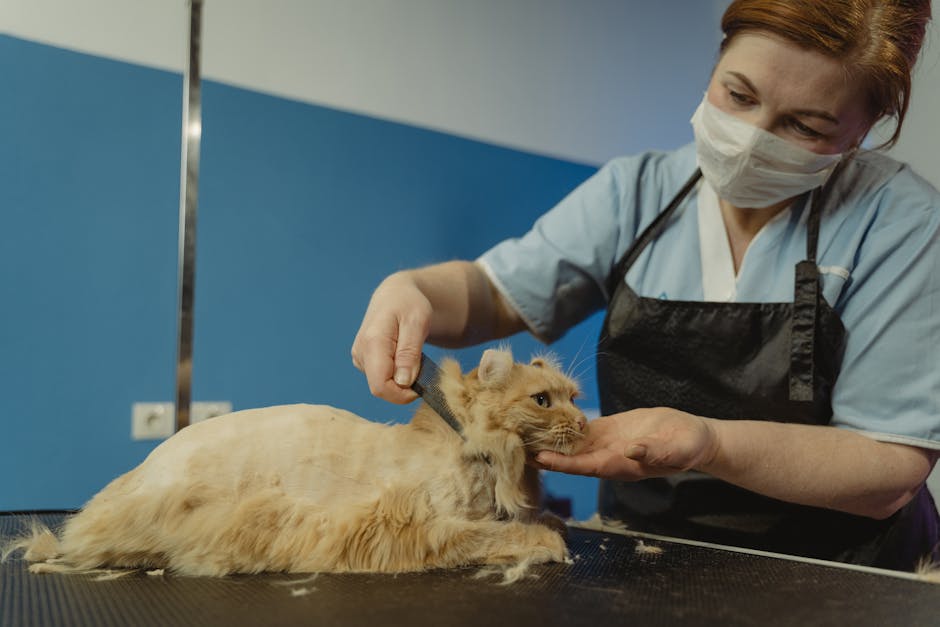Owning a pet is a profound joy, a source of unconditional love and companionship. However, responsible pet ownership extends beyond providing food and shelter. A critical aspect involves proactively mitigating the risk of common health problems. Understanding potential pitfalls and implementing preventative measures can significantly enhance your pet’s overall health and happiness. This article explores key strategies to safeguard your furry, feathered, or scaled friend’s well-being.
A cornerstone of preventative care lies in a comprehensive understanding of your pet’s specific needs, breed predispositions, and environmental factors. Breed-specific health issues are often predictable. For instance, certain breeds are prone to hip dysplasia or specific eye conditions. Researching your pet’s breed thoroughly and consulting with a veterinarian experienced in that breed can provide invaluable insights into potential vulnerabilities. This initial knowledge empowers informed decision-making about diet, exercise, and potential screening tests.
Nutrition is paramount in maintaining optimal health. A balanced diet tailored to your pet’s age, size, and activity level is crucial. Avoid overfeeding, which can contribute to obesity. Obesity, in turn, places immense stress on various organ systems, increasing the risk of diabetes, joint problems, and cardiovascular diseases. Consulting your veterinarian about appropriate portion sizes and nutritional requirements can steer you toward a well-structured meal plan. Avoid feeding table scraps and human food, as these often contain ingredients that are not suitable for animals.
Regular veterinary checkups are not merely routine; they are essential preventative measures. Routine examinations allow early detection of potential problems, even before they manifest as noticeable symptoms. Routine blood tests and diagnostic imaging can reveal underlying conditions early on, enabling prompt intervention and potentially saving your pet’s life. Be proactive about scheduling checkups, particularly as your pet ages, and be attentive to any subtle changes in their behavior or appearance.
Dental hygiene is another frequently overlooked yet critical area. Dental disease, encompassing periodontal issues and tooth decay, can lead to pain, infection, and systemic health problems. Regular brushing, dental chews, and professional cleanings can significantly reduce the risk of these debilitating conditions. This preventive approach promotes not only a healthier mouth but also a healthier overall body.
Parasite control is an absolute necessity for all pets. Internal and external parasites can cause discomfort, illness, and transmit diseases to humans. A thorough preventative plan may involve monthly parasite prevention medication, regular flea and tick treatments, and appropriate environmental controls. Thorough understanding of your local environment and the types of parasites prevalent in your area is critical in formulating an effective parasite prevention strategy.
Exercise and mental stimulation play a crucial role in maintaining a healthy weight and a strong immune system. Regular physical activity, tailored to your pet’s age and breed, is essential for cardiovascular health, joint mobility, and stress reduction. A lack of exercise often contributes to obesity, joint problems, and even behavioral issues. Mental stimulation, through interactive toys, games, and social interaction, is also paramount. An under-stimulated pet is susceptible to anxiety, boredom, and even destructive behaviors.
Stress management is often overlooked but critically important. Pets can experience stress from various sources, including changes in routine, environmental adjustments, and even interactions with other animals. Recognizing and managing potential stressors in your pet’s environment is vital. Providing a safe, predictable, and enriching environment can significantly reduce stress levels and boost their overall wellbeing.
Finally, recognizing behavioral changes is an indicator of potential health issues. Any noticeable shift in appetite, energy levels, elimination patterns, or mood warrants immediate veterinary consultation. Prompt attention to these subtle changes allows early diagnosis and intervention, potentially preventing the progression of underlying diseases.
Ultimately, preventative care is an investment in your pet’s long-term health and happiness. By understanding their unique needs, providing a balanced diet, ensuring regular veterinary checkups, prioritizing dental hygiene, controlling parasites, promoting exercise and mental stimulation, managing stress, and remaining vigilant about behavioral changes, you can greatly minimize the risks associated with common pet health issues. This comprehensive approach ultimately leads to a stronger, healthier, and more fulfilling relationship with your beloved companion.
